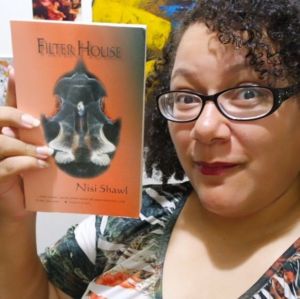So a quick confession. I’ve read some stories that qualify as horror (by Harlan Ellison, Orson Scott Card, Stephen King, Chelsea Quinn Yarbro, Robert Holdstock and others), but it’s not a genre I really enjoy. I mean, I read as an escape or to broaden my horizons–horror, to me, provides a thrill but it’s not as much of an escape. Still, I can’t say that I didn’t enjoy stories like I have no mouth but I must scream. It’s just that a little horror goes a long way, kind of like really spicy dishes.
Anyway, the Journey is doing its sixth short story anthology in 2015: a horror anthology with a theme of masks, disguises or things that are hidden. Ana Koulouris, Kevin C. Swier, Brian Cable, Dan Hoger and Taylor Anhalt are the editing team that will make this happen. We currently have about twelve authors of stories and poems. If anyone reading this article is interested in joining the fun, please submit your story (flash fiction of at least 350 words, short stories of up to 5000 words) or poem first draft by March 14th (one week from now).
Since I haven’t really written any horror stories before, I googled how to do it and came up with the following:
- How to write horror stories
- On writing horror and avoiding cliches
- 24 things about writing horror
- Writing horror – how to make a story scary
- 17 ways to write a terrifyingly good horror story
- Horror writing worksheet (PDF)
The first reference (from writers digest) talks about avoiding clichés, for instance of evil:
Take the theme of evil, as the horror story often does. Writing about evil is a moral act, and it won’t do to recycle definitions of evil—to take them on trust. Horror fiction frequently presents the idea of evil in such a shorthand form as to be essentially meaningless—something vague out there that causes folk to commit terrible acts, something other than ourselves, nothing to do with us. That sounds to me more like an excuse than a definition, and I hope it’s had its day. If we’re going to write about evil, then let’s define it and how it relates to ourselves.
From what I’ve seen of the stories the Journey members have planned for the anthology, there will be some very interesting takes on what horror is and how to invoke that emotion in the reader.

